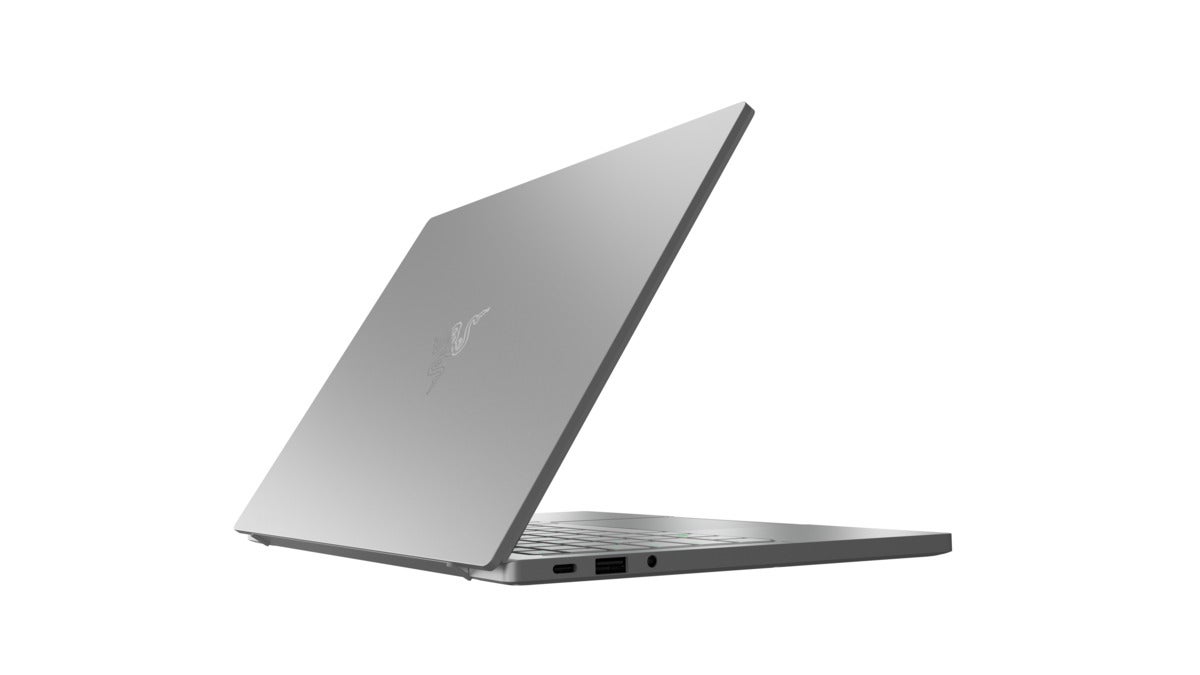The Razer Book 13 is aimed at productivity users with its 11th-gen Intel CPU.
Razer
Today’s Best Tech Deals
Picked by PCWorld’s Editors
Top Deals On Great Products
Picked by Techconnect’s Editors
If you yearn for Razer hardware, but you don’t actually need to play games on your laptop, the new Razer Book 13 might be your thing.
The Razer Book is crafted using the company’s signature CNC-milled construction, which has given Razer laptops a reputation for being built tough. Inside, it’ll feature Intel’s new 11th-gen “Tiger Lake” CPU with Iris Xe graphics.
To keep Intel’s new CPU cool, Razer uses a vapor chamber construction rather than a lower-cost heat pipe. The new laptop won’t exactly be light at 2.95 pounds, but it’s fairly small at 11.6 x 7.8 x 0.6 inches.
 Razer
RazerRazer
That 2.95-pound rating is with the non-touch version of the Razer Book 13, though. The touchscreen version with a Gorilla Glass protective layer takes the weight up a bit, to 3.09 pounds.
We welcome the use of a 16:10 aspect ratio panel with both the 1920×1200 and 3840×2400 resolution options. This taller aspect ratio gives you more vertical space to work with than laptops with a 16:9 ratio.
Other feature highlights include RAM options from 8GB to 16GB of LPDDR4X/4267, with storage ranging from 256GB to 512GB using a standard M.2 drive. Ports include two Thunderbolt 4, a USB-A 10Gbps port, HDMI 2.0 and microSD reader. Battery life is rated at 14 hours using a 55-Watt-hour battery. And because it’s a Razer laptop, the Razer Book 13 naturally comes with a full per-key RGB keyboard.
The Razer Book 13 is expected to go on sale on November 20 with a starting price of $1,199 for the Core i5 version with a non-touch display. For $1,599 you can step up to a touchscreen model with a Core i7-1165G7, 16GB of RAM, and 512GB SSD. The top-end model with a 4K+ touchscreen will take you up to $1,999.
 Razer
RazerNote: When you purchase something after clicking links in our articles, we may earn a small commission. Read our affiliate link policy for more details.
One of founding fathers of hardcore tech reporting, Gordon has been covering PCs and components since 1998.


